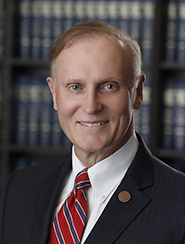
But they also hinted they’d want changes to the concept. They said they’d like to steer money to traditional public schools that wanted to offer wraparound services or make other changes to help their most disadvantaged students.
The Senate Education Committee this afternoon approved two bills, SB 796 and SB 1362. Both would revive a concept that’s made the rounds in Tallahassee for years: Making Florida more hospitable to “high-impact” charter schools with a proven track record of raising achievement among disadvantaged students.
Florida has long struggled to attract those institutions, despite the desires of its top policymakers.
The House’s sweeping proposal would accelerate the timeline for public school turnarounds and look to shift students out of persistently struggling schools, into the same high-performing charters the Senate would hope to court with its more modest bills.
Sen. David Simmons, R-Altamonte Springs, is the upper chamber’s chief K-12 education budget-writer and chairs the committee slated to hear the two Senate bills next.
He said the House had launched a long-overdue discussion about taking faster action to help children in persistently struggling schools.
“They have put on the table the idea that we are not going to continue to accept failure for these children,” he said.
But he added that high-performing charters are just one “arrow in the quiver” to fight the problem.
The two chambers are preparing to hash out differences in their competing state spending plans. The House has budgeted $200 million for a Schools of Hope grant program.
Simmons said he wants to steer some of that money to traditional public schools to help them do some of the same things Schools of Hope might do, like lengthen the school year or provide wraparound services.
For one thing, he said, charter operators would not be in a position to immediately enroll all of the tens of thousands of children who attend the state’s 115 chronically D- and F-rated schools.
His district-plus-charter approach drew praise from Democrats on the panel, who otherwise greeted the charter school legislation with skepticism.
The ultimate goal, Simmons said, should be to “help students help themselves, and help those who are educators help them.”


